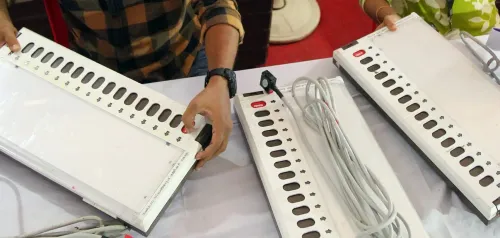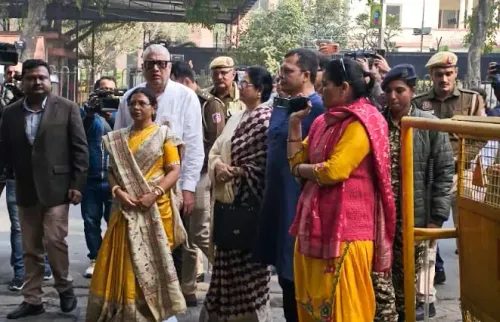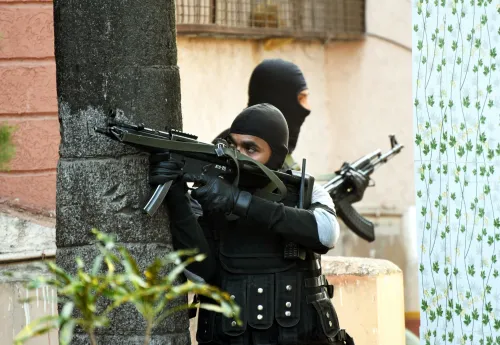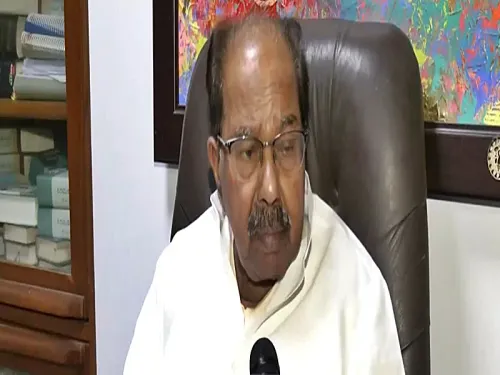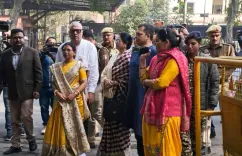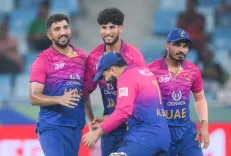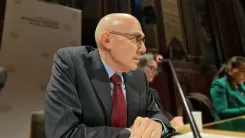Is Congress Leadership Facing a Crisis in Karnataka?

Synopsis
Key Takeaways
- Leadership Crisis: Intensifying rivalry between Siddaramaiah and Shivakumar threatens party unity.
- Historical Context: Previous conflicts within Congress highlight the risk of internal divisions.
- Electoral Impact: A split in Karnataka could weaken Congress nationally.
- Need for Mediation: High command intervention is critical to resolve tensions.
- Public Perception: Open demands from both factions are damaging the party's image.
New Delhi, Nov 28 (NationPress) The Congress party is grappling with turmoil in Karnataka as the leadership crisis escalates, revealing an intensifying rivalry between Chief Minister Siddaramaiah and Deputy Chief Minister D.K. Shivakumar.
The central leadership is attempting to manage competing loyalties and avert a potential split, a situation stemming from conflicts tied to caste dynamics, class representation, and diverging political interests. This predicament traces back to the 2023 Assembly elections, where the party claimed victory under Siddaramaiah’s guidance while simultaneously benefiting from Shivakumar’s organizational expertise.
Amidst contradicting assertions from both leaders and their respective supporters, an informal agreement supposedly emerged, suggesting that Siddaramaiah would occupy the Chief Minister's office for half of the five-year term, with Shivakumar taking over for the remaining two and a half years. As Siddaramaiah approaches the halfway mark in November 2025, demands from Shivakumar’s faction for a leadership transition are intensifying.
In contrast, Siddaramaiah’s side insists on completing the full five-year term. This scenario echoes a past conflict in Rajasthan, where a similar power struggle unfolded between then Chief Minister Ashok Gehlot and his deputy Sachin Pilot, culminating in a significant rebellion in 2020 aimed at destabilizing the government after years of factional disputes.
The Rajasthan conflict symbolized a generational rift within the Congress, remaining unresolved despite interventions from the party's leadership, including Rahul Gandhi. This internal strife ultimately weakened the Congress in Rajasthan, leading to governmental instability and the party's loss of power.
Similarly, in states like Madhya Pradesh and West Bengal, infighting has contributed to the Congress’s decline and diminishing political relevance.
In Karnataka, Siddaramaiah draws strength from the AHINDA coalition, representing minorities, backward classes, and Dalits, positioning himself as a champion of social justice and appealing to the rural poor. His initiatives, such as free rice distribution and various social welfare programs, have solidified his image as a populist leader.
Conversely, D.K. Shivakumar, a prominent figure among the Vokkaliga community, symbolizes one of Karnataka's most potent agrarian castes. His financial resources, business connections, and adept organizational abilities render him the party’s key strategist and financial supporter, earning him significant influence within the party’s hierarchy.
Promoting Shivakumar could consolidate Vokkaliga support but risks alienating other groups, such as Dalits, Muslims, and OBCs. Additionally, his aggressive approach and reputation for wealth-driven politics may not sit well with the party's poorer constituents.
The public display of demands from both factions has tarnished the party's image, with MLAs from both sides lobbying in Delhi, fostering perceptions of instability. Although Congress President Mallikarjun Kharge has recognized the ongoing crisis and promised action, the high command's indecisiveness remains evident.
Despite Shivakumar’s insistence on meeting with Rahul Gandhi, reports indicate that he has been asked to “wait.” Although Shivakumar claims he is “not in a hurry,” pressure from his supporters is mounting, referencing the alleged agreement regarding a half-term.
A split in Karnataka, the Congress’s most significant success amid a series of political challenges, could severely weaken the party's standing nationally.
The high command is reportedly preparing to convene both leaders in Delhi for discussions, with Kharge, Rahul, and Sonia Gandhi anticipated to mediate. A mid-term leadership swap honoring the alleged pact might satisfy Shivakumar but could destabilize Siddaramaiah’s support base. Alternatively, a compromise involving a “third name” or a temporary Chief Minister from outside both groups risks diluting the Congress’s mass appeal.
In light of this situation, the party high command is tasked with executing a delicate balancing act, lacking even the essential groundwork.

